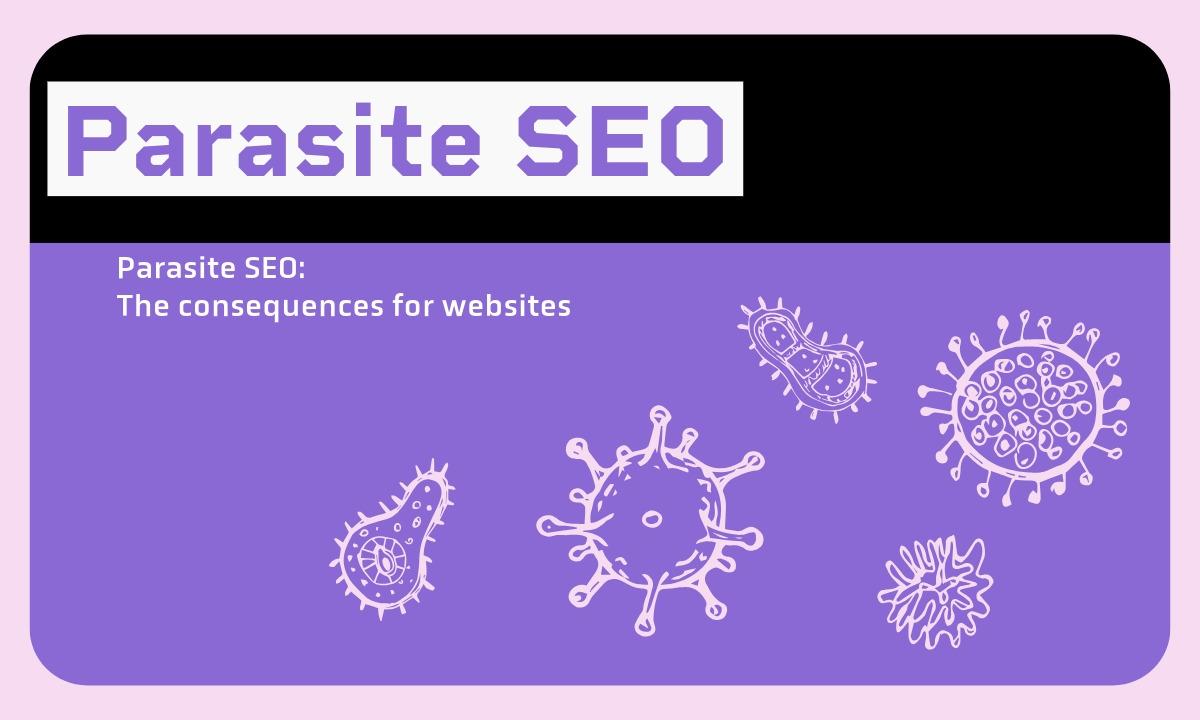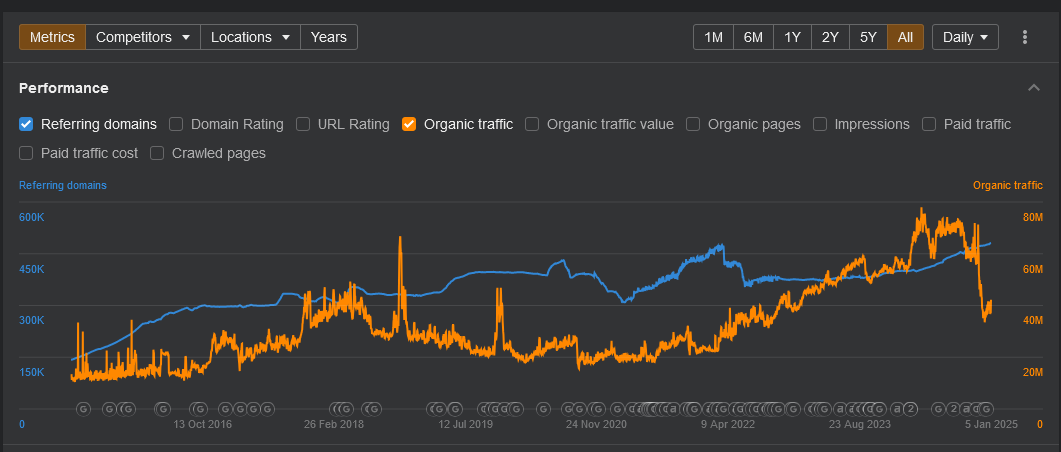Parasite SEO: the consequences

- Jan 6, 2025 modified: Jan, 06 2025
Parasite SEO: the consequences
Parasite SEO: A Quick Way to Rank or a Dangerous Strategy?
Parasite SEO is when content is published on a well-established website to take advantage of its strong search rankings, but the content itself doesn't fit with the website's main theme or purpose.
Essentially, it's about using the site's credibility to boost rankings for unrelated or low-quality content. You might see examples like a news site sneakily posting online shopping coupons or an educational site publishing affiliate marketing links that don't add value to their audience.
Recently, Google has stepped up its efforts to crack down on this practice by updating its spam policy. The search engine is targeting parasitic content-those articles or pages that exploit a site's ranking power without offering meaningful or relevant content.
What's important to note is that it doesn't matter if the site owner creates the content or outsources it; if the content is there just to game the system, Google will take action.
This update serves as a reminder to focus on creating quality, relevant content that aligns with a site's purpose rather than trying to manipulate search rankings through tricks.
What is Parasite SEO?
Parasite SEO content refers to articles or pages published on a website that take advantage of the site's strong ranking signals without aligning with the site's main focus or purpose.
This content "hitches a ride" on the authority of the host site to boost its own visibility, even though it doesn't provide relevant or valuable information to the site's audience.
For example, a news blog might publish online shopping coupon codes buried in a section of the site that doesn't match its typical content, or an educational website might host affiliate marketing content that promotes unrelated products. These types of content are often designed purely to manipulate search engine rankings, rather than offering useful or engaging information to users.
Google's Updated Spam Policy
In response to the growing concern over parasite SEO practices, Google has updated its spam policy to target content that exploits a site's reputation for ranking manipulation. This update emphasizes that websites will be penalized for engaging in what Google terms "site reputation abuse."
Previously, Google's focus was mainly on the publisher creating the content, but the updated policy makes it clear that the issue lies in the content itself, regardless of who produces it.
This shift means that even if content is outsourced to a third-party, such as a marketing firm, or involves complex business arrangements like licensing agreements, it still counts as a violation if it's used to exploit a host site's ranking.
Google is now focused on eliminating any form of third-party manipulation - whether it's direct or indirect involvement in creating parasitic content-that undermines the integrity of search results.
The Case of Sports Illustrated and Other Publishers
Several notable websites have been linked to parasite SEO tactics, either through intentional or inadvertent use of third-party content aimed at exploiting their high-ranking status. While some of these sites may not have directly created the problematic content themselves, their platforms became conduits for SEO manipulation.
1 Sports Illustrated
A notable example of parasite SEO content came to light with Sports Illustrated, which faced significant backlash after it was discovered that the site had published AI-generated product recommendations created by a third-party marketing firm.
These product recommendation articles, which appeared on a separate section of the Sports Illustrated website, were not only irrelevant to the core content of the site but also lacked the editorial oversight that readers expect from such a reputable platform.
2 USA Today
USA Today was another major publisher involved in parasite SEO through its partnership with AdVon Commerce, the same marketing firm linked to Sports Illustrated.
The firm created AI-generated product recommendations and affiliate marketing content that appeared on USA Today's website. These pieces of content were not aligned with the site's usual editorial content and appeared to be designed solely for SEO manipulation.
3 Forbes
Forbes has been criticized for hosting a significant amount of contributor-driven content that often pushes affiliate links or sponsored content. While many of the articles are written by external contributors, the publication has faced scrutiny over whether it's adequately policing the relevance and quality of content, especially when articles contain irrelevant affiliate marketing links or low-value content solely for ranking purposes.

What Does This Mean For Site Owners?
The crackdown on parasite SEO by Google carries important lessons on the risks of allowing third-party content that doesn't align with their site's focus. The key takeaway is clear: while SEO practices can help boost your site's ranking, they should never come at the cost of content integrity or violate Google's guidelines.
Remember, SEO is not just about short-term gains; it's about creating value that resonates with your audience and enhances their experience. When you prioritize content that aligns with your site's mission and contributes meaningfully to the web, you're not just avoiding penalties - you're building a reputation that will stand the test of time.
Search News Articles...
Recent Articles

Google Stays Dominant in the Age of AI
- Apr 15 2025
- /
- 108

Alternatives to Booking.com for booking systems
- Apr 04 2025
- /
- 160

Public Service Cuts
- Mar 11 2025
- /
- 249

Using QR codes for your business
- Feb 24 2025
- /
- 295

What is the Network Effect?
- Feb 05 2025
- /
- 304

Connecting Communities on Twitter X
- Jan 20 2025
- /
- 355

Parasite SEO: the consequences
- Jan 06 2025
- /
- 416

Identifying Misinformation Online
- Dec 20 2024
- /
- 468

How is Metadata used in SEO?
- Nov 21 2024
- /
- 408

Amazon's Role in E-Commerce
- Nov 05 2024
- /
- 411
View All News Articles
Categories
A Gold Coast SEO and Web Developer